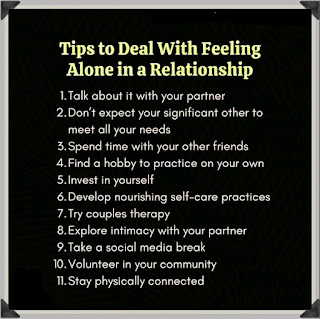The holiday season is generally thought of as a time of joy and love, but for many people, it’s a time of loneliness. Loneliness happens when you feel socially isolated, and it can have a powerful impact on your mental health. It's easy to jump to the conclusion that others are having more fun than you. People tend to share their good times more than their down days, especially on social media.
Seasonal affective disorder.
Some people regularly struggle with depression and fatigue during the winter months. These symptoms may be due to seasonal affective disorder (SAD), which may be triggered by low levels of sunlight. The body responds by producing less melatonin, a hormone tied to sleep, and less serotonin, a brain chemical that affects mood. You may feel better if you seek out sunlight on brighter winter days. You can also buy a lightbox and see if using it boosts your spirits If you're wondering what to do when feeling lonely, here's what therapists, doctors and researchers say are some of the best strategies to cope with loneliness:
Unrealistic expectations.
It's easy to jump to the conclusion that others are having more fun than you. People tend to share their good times more than their down days, especially on social media. If seeing other people's posts bothers you, then cut back on social media or leave it completely for a while. Also, don't compare your current holiday with ones from the past. Keep the present in perspective, as new traditions can be just as fulfilling as fondly remembered old ones. One way to deal with the feelings of loneliness is to rethink your expectations. For example, realizing that it's just fine to take a good friend (instead of "the perfect date") to a holiday party, or that the imperfect love of a difficult family member still counts as love, has helped many people feel less lonely.
Acknowledge and validate your feelings of loneliness.
Telling other people or even admitting to yourself that you're lonely can feel scary, shameful and self-defeating. But expressing that feeling can be the beginning of releasing it. Rather than focusing on what is missing, pay attention to the goodness present. Begin a holiday gratitude journal by writing each night about what you are grateful for that day. Denying our loneliness only perpetuates it, so before we can recover, we have to be honest at least with ourselves about what we are experiencing.
Give to Others
One particularly meaningful way to feel less lonely during the holidays is to donate your time to a cause you believe in. Helping others who are less fortunate can fill you with feelings of love and pride. It also can remind you of all you have to be grateful for, and even connect you with others who share your passion. You’ll be part of something larger than yourself, and you’ll be immersing yourself in the true spirit of the holiday season. Focus your energy on helping others. Whether you want to volunteer at a local soup kitchen or just pay for someone else’s coffee, small acts of kindness can take your mind off of your feelings of loneliness and sadness if you’re alone for the holidays.
Gratitude
There are many far-reaching benefits to practicing gratitude. One easy antidote to feelings of lack is to cultivate feelings of gratitude for what you have; it's hard to focus on both at once. Expressing gratitude can help you appreciate what you have, focus on the positives in life, and see the good in others. It can also help you heal. If you're feeling a lack of love in your life, make a concerted effort to focus on the love that you do have from friends, family, neighbors, and even pets. You can also focus on things you really value in your life like your work, hobbies, or even your potential.
